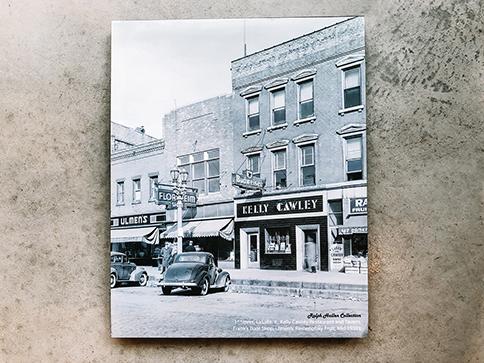The Cawley name has not always been synonymous with commercial real estate in the greater Chicago area, but it has always signified something of prominence. Long before Daniel Cawley formed Cawley Commercial Real Estate Commercial Real Estate, his ancestor built up a different kind of empire: casinos. Thomas J. Cawley was known as the “Czar of Gambling” in LaSalle, Illinois from the 1930s-1950s.
The Rise
Thomas J. Cawley quit his job as a streetcar conductor in 1926 to partner with a local pool hall and cigar store owner, Vincent Kelly. Despite their humble beginnings, these entrepreneurs had bigger dreams than operating a local watering hole – they wanted to build a gambling empire. Cawley progressed their vision even after Kelly’s death in 1932. With funds from a bank loan, Cawley greatly expanded the operations of the Kelly-Cawley Smoke House. He added two floors, lunch and beer parlors, poker rooms, a roulette table, craps tables, and over 200 slot machines. Cawley even spread out to a second location in Streator called the Paddock Club. What was once a small pool hall would now become one of the most successful casinos in the city, known as “Little Reno.”
The Reign
Thousands of people flocked to the Kelly-Cawley Smoke House in the 1930s and 1940s looking for a distraction from World War II. Crowds of people would ride the Rock Island Rocket from Chicago to LaSalle, and Cawley drew them in with premium food and entertainment at extremely low prices: 50 cents for a steak dinner and only 25 cents for chicken. He was able to charge such low prices because the revenue from gambling would more than offset any money lost. Customers were also entertained by a variety of famous performers, including Singin’ in the Rain’s Donald O’Connor. Cawley even got help from politicians and local law enforcement to ensure that Chicago mobsters were prevented from taking over his business. For over 20 years, the “Czar of Gambling” enjoyed immense success.
The Roadblocks
Although many people supported Cawley and his gambling empire, there were some that did everything they could to take him down. Anti-gamblers and distraught family members made accusations that are similar to ones casinos still face today – that casinos were predatory businesses where people would lose their paychecks Even though Cawley almost always agreed to return money to people who asked for it, the anti-gambling movement persisted. One of Cawley’s greatest enemies was the president of the company that published the LaSalle-Peru News Tribune, Elizabeth “Bazy” McCormick Miller. Miller was highly critical of Cawley for violating anti-gambling laws. Cawley was even subpoenaed to testify in front of the Kefauver Committee, a committee investigating organized crime, in 1950. Instead of pleading the fifth like most mobsters, Cawley shocked everyone with his honesty and fully admitted to his gambling operation. Even after giving his incriminating testimony and facing increasing pressure to shut down, Cawley continued business as usual for several more years.
The Resolution
Cawley persevered for as long as he could, but the walls eventually came down – especially after attitudes toward gambling shifted in the wake of World War II. In 1953, newly elected LaSalle County State’s Attorney Harland D. Warren orchestrated a raid on the Kelly-Cawley Smoke House. Warren confiscated truckloads of illegal gambling equipment in the raid. The persistent investigations and the threat of jail time became overwhelming, so Cawley decided to close down his establishment shortly after the raid.
The site of the Kelly-Cawley Smoke House still stands today, although it is now a boutique called Kelley Cawley. Thomas J. Cawley’s gambling empire may have fallen, but his ambitious, entrepreneurial spirit lives on through Daniel Cawley.




